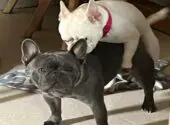It’s a familiar story, and it usually goes like this: you come home after a long day, eager to cuddle up with your pup and be greeted with…nothing. Your pup is nowhere to be found, and a quick scan of the house confirms that they’re fast asleep! You then ask yourself, “Why is my puppy sleeping so much? Is something wrong with my pup?”
There may be a few reasons behind the extra snoozing, and we’re here to tell you all about them.
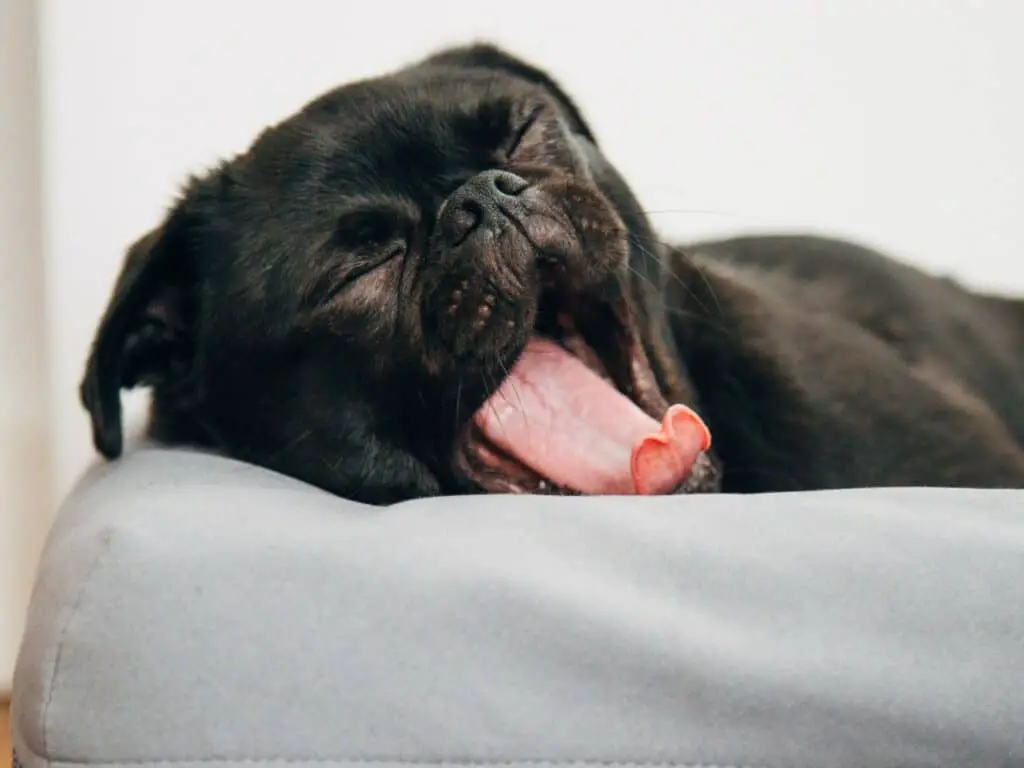
Why Do Puppies Need So Much Sleep?
Puppies are the sleepiest of sleepy heads. They need significantly more sleep than adult dogs because their bodies are developing rapidly. During snooze time, several development processes are essential to proper growth.
Puppies need lots of sleep for immune system development. Because their immune systems are not fully developed, they need quality sleep to bolster immunities and safeguard their health.
Sleep is integral for the proper growth of your puppy’s brain structure, bodily functions and immune system. A significant amount of sleep is necessary to help them grow into healthy and happy adults with plenty of energy to keep up with their owners’ demands.
Puppies need lots of sleep for energy conservation. If you’ve ever noticed how quickly your puppy can pass out after playing or running around, that’s why. They take advantage of every opportunity to rest and replenish their little bodies. This helps them conserve energy for essential growth processes such as muscle development and brain stimulation.
Puppies need lots of sleep for brain development. Just like humans, adequate sleep is essential for proper brain development in puppies. When a puppy doesn’t get enough rest or experiences too much stress due to lack of sleep, it can affect his overall well-being as an adult dog.
Read also: When Do Puppies’ Eyes Change Color?
How Much Sleep Is Ideal For My Puppy?
It can be difficult for new puppy parents to try and understand what is too much or too little when it comes to the amount of rest their furry family members should be getting.
When you look into those sweet puppy eyes, it’s hard to believe just how helpless these little creatures are in the first days of life. They can’t see or hear anything beyond instinctive responses; everything is focused on survival — sleeping and nursing. Most puppies will sleep soundly for 5-6 hours at a stretch before needing a feed, then return straight back to la-la land.
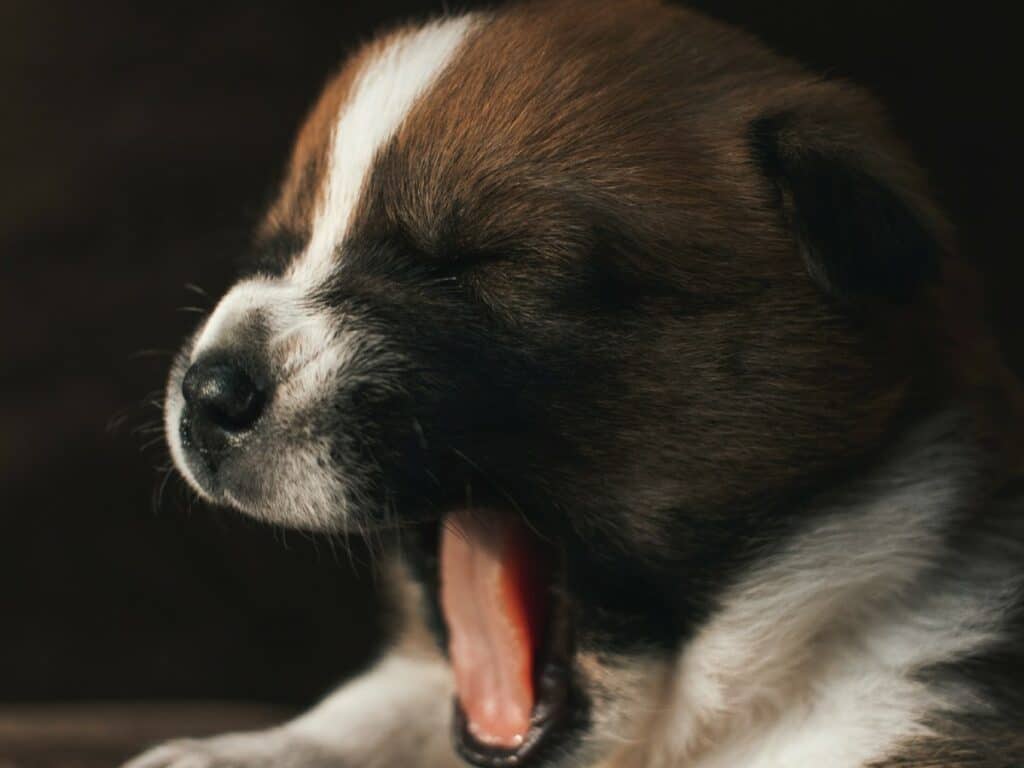
Puppyhood may be a time when your pet needs up to 18-20 hours of sleep per day. As they reach adulthood, that number typically drops to 8-10 hours daily. However, this varies depending on the breed, with some breeds requiring more or less than others — age, diet and activity level too.
Reasons Why A Puppy Is Sleeping More Than Usual
What happens when a pup’s bed become a permanent fixture in your living room?? It may be a sign of something more serious than just tiredness. There are several reasons why your puppy has been catching extra zzzs, from physical to psychological ones.
1. Breed of the Puppy
The amount of sleep a puppy receives can vary between different breeds. The breed of your pup likely explains why your pooch is snoozing away for most of the day.
Dog breeds that appear to sleep more include:
- Great Pyrenees
- Pugs
- Cocker Spaniels
- Great Danes
- Chow Chows
- Bernards
- Cavalier King Charles Spaniel
- Lhasa Apsos
- Greyhounds
- Pekingese
- French Bulldogs
- Basset Hounds
- Mastiffs
- Shih Tzu
- Bulldogs
2. Age of the Puppy
Pups go through stages of development, similar to humans. This time period is typically marked by rapid growth and generally ends when they turn one to one and a half years old. To facilitate the biological and psychological processes within their systems, puppies will have prolonged sleeping cycles.
3. Activity Level
Activity level often greatly affects how much rest your pup needs. If you’ve been taking your dog for regular walks and engaging in lots of playtimes with them, chances are that all that physical activity takes up most of their day. When this is the case, your pup may need extra sleep to replenish its energy stores.
4. Diet
Does your puppy sleep more than usual? Is your puppy’s sleeping schedule a bit off? If you’re wondering why, diet may be the culprit.
A balanced and nutritious diet can keep a pup healthy and active. The right nutrients are necessary for providing energy throughout the day and helping keep up with their growing bodies.
Contrarily, a low-nutrient diet saps a puppy’s usual energy levels and causes them to be overly tired more than usual. Your pup experiences fatigue and excessive sleepiness, making him a couch potato who only wants to sleep all day.
5. Temperature
Whether it’s warmer than usual or cooler, a temperature change can cause pups to sleep more than they usually do. This could mean they’re taking longer naps or snoozing through most of the day.
Like humans, too much heat can make them feel sluggish and sleepy, so if your pup has been taking extra siestas lately, it could be because they’re trying to beat the heat.
On the other hand, cold weather means your pup will likely want to curl up and stay warm, leading them to take multiple naps throughout the day.
Temperature changes can be difficult for pups, so it’s up to pet parents to provide comfort and support.
6. Boredom
If your pup is dozing off more than usual, it might be due to being too inactive during the day. Puppies who are kept busy with exercise, playtime and mental stimulation have fewer signs of lethargy than those who don’t have much to do.
At some point, the boredom will become too much for them to bear, and your pet will make it known by pacing back and forth or chewing furniture.
7. Anxiety
Anxiety in puppies isn’t uncommon and can manifest in many different ways, such as changes in sleep habits. This could be caused by anything from lifestyle to environmental changes. The key is to identify what’s causing your puppy anxiety so you can create an environment where he or she feels safe and secure.
If your puppy is getting plenty of exercise, and eating well but still seems to have an abnormally extended bedtime, it may be time to start exploring other possibilities.
8. Diabetes
When the pup’s body is unable to produce sufficient amounts of insulin adequately or use what’s already produced, it can result in diabetes. One of the most common symptoms is excessive sleeping and lethargy. Other signs include decreased appetite, weight loss, excessive water drinking and increased urination.
If you suspect that your puppy may have diabetes, contact your veterinarian for an evaluation right away. Early diagnosis and treatment are key to helping them manage this condition and continue living their best lives.
9. Teething
When your puppy is teething, it’s a time of discomfort and change. Your four-legged friend might be drooling more than usual, have some mouth discomfort or even bleeding from their gums. But there’s one other symptom to watch out for: increased sleepiness. Puppies sleep more than usual due to the pain.
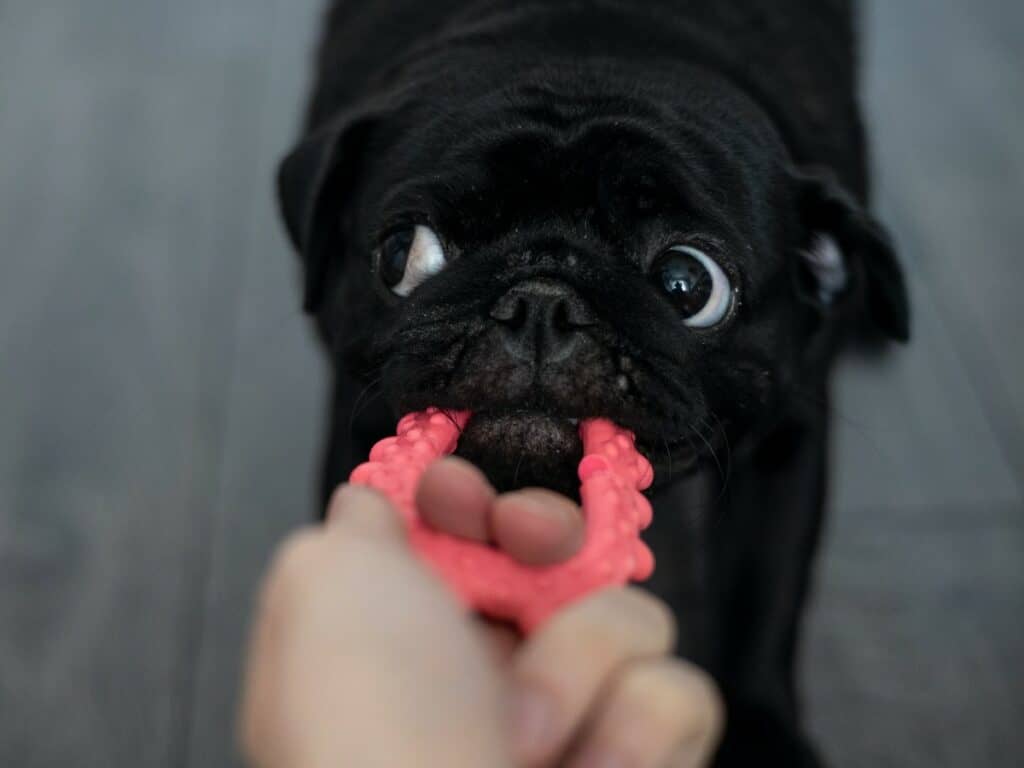
As a pet parent, you should be prepared for this stage by having plenty of chew toys to help soothe their sore gums and distract them from biting other objects around the house during this period.
10. Anemia
Anemia is a condition where the body doesn’t have enough red blood cells, which might give your pup drowsiness.
This condition can sneak up on puppies without warning, but there are some signs to watch out for. Does your pup seem to tire easily or have labored breathing? If so, your pup may be anemic. Anemic pups often appear lethargic and sleepier than usual.
Why Is My Puppy Sleeping So Much: When To Seek Veterinary Care
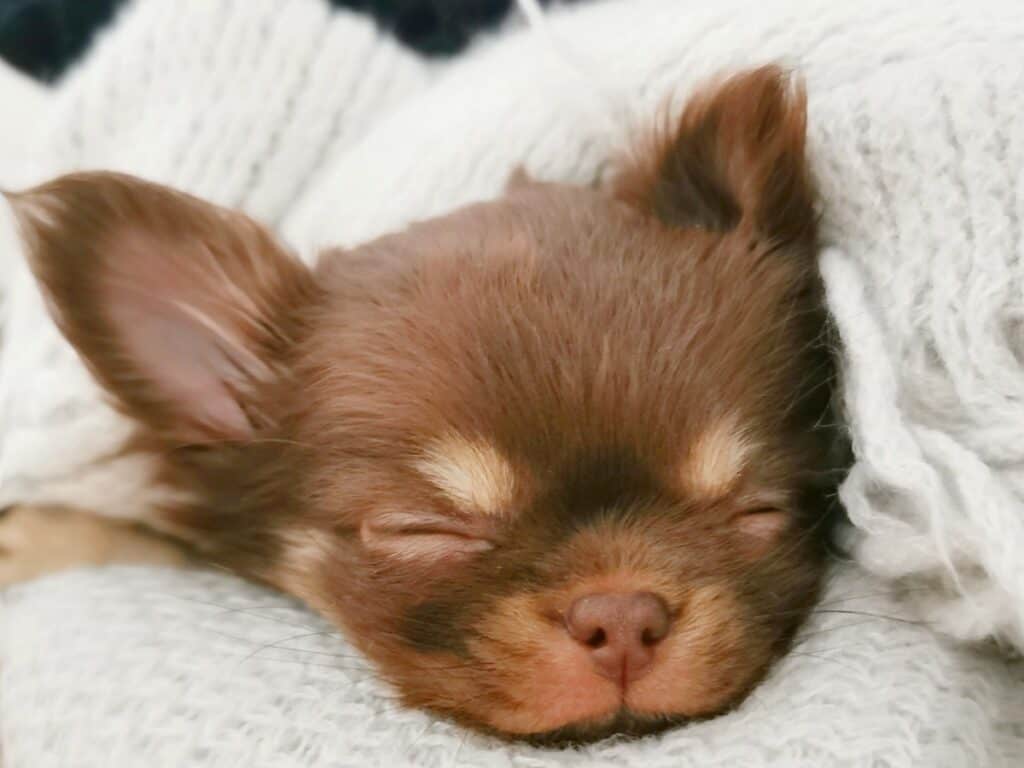
If you’re concerned about why your pup has been dozing off more than usual, some common causes may include teething, needing more exercise, or simply being too tired from playing.
To ensure that your pooch is feeling its best, you should take them for regular checkups at the vet’s office so any health problems can be caught early on and dealt with before they worsen.
References
Sherman, B. L. (2008). Separation anxiety in dogs. Compendium, 30(1), 27-42.
Takeuchi, Y., Houpt, K. A., & Scarlett, J. M. (2000). Evaluation of treatments for separation anxiety in dogs. Journal of the American Veterinary Medical Association, 217(3), 342-345.




